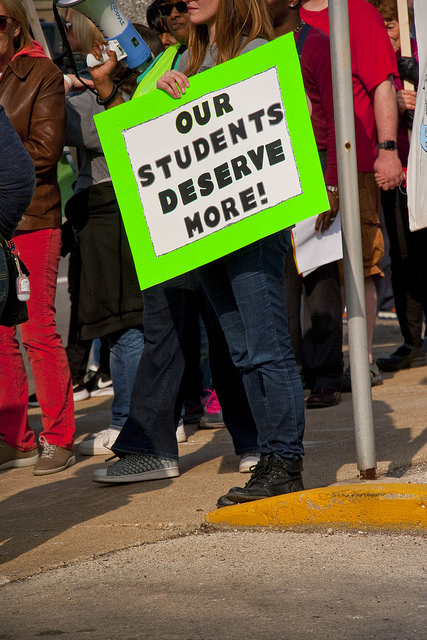
In 2013, the abrupt closing of fifty Chicago public schools largely impacted people of color in West and South Side neighborhoods. Reasons for closures included under-enrollment and poor performance, but according to Chicago-based sociologist Eve Ewing, there is more to the story. In a recent interview with Morning Shift radio, Ewing describes systemic issues that contributed to under-enrollment, like the demolition of 22,000 public housing units across the city as part of the Chicago Housing Authority’s “Plan for Transformation.”
Subsequent school closings have disproportionality harmed students of color, and while these policies may not be intentionally racist, Ewing argues they reflect persistent structural racism in Chicago. For example, the school closings risk students’ safety, as many are now forced to trek through areas with perilous gang activity to reach their new schools. The emotional impact of school closings can also be devastating, comparable to family separations. Ewing observed close familial relationships between black students and their teachers and classmates, and thus the resulting separation can feel like losing a family member. And for “legacy” students, whose families have attended the same school for generations, the devastation is felt by entire families. To emphasize the severity of these school closings, Ewing makes a powerful connection between historical racism and policies today:
“A principal who was speaking at a school closure meeting, a black woman, stood up and said, ‘I feel like I’m at a slave auction right now.’… And I think that obviously there are many important distinctions between this kind of separation and chattel slavery, but I do think it’s important to think about, for black children, what it means to take them away from situations of stability, where they have deep, meaningful bonds with the adults and the other children in their lives.”

Comments